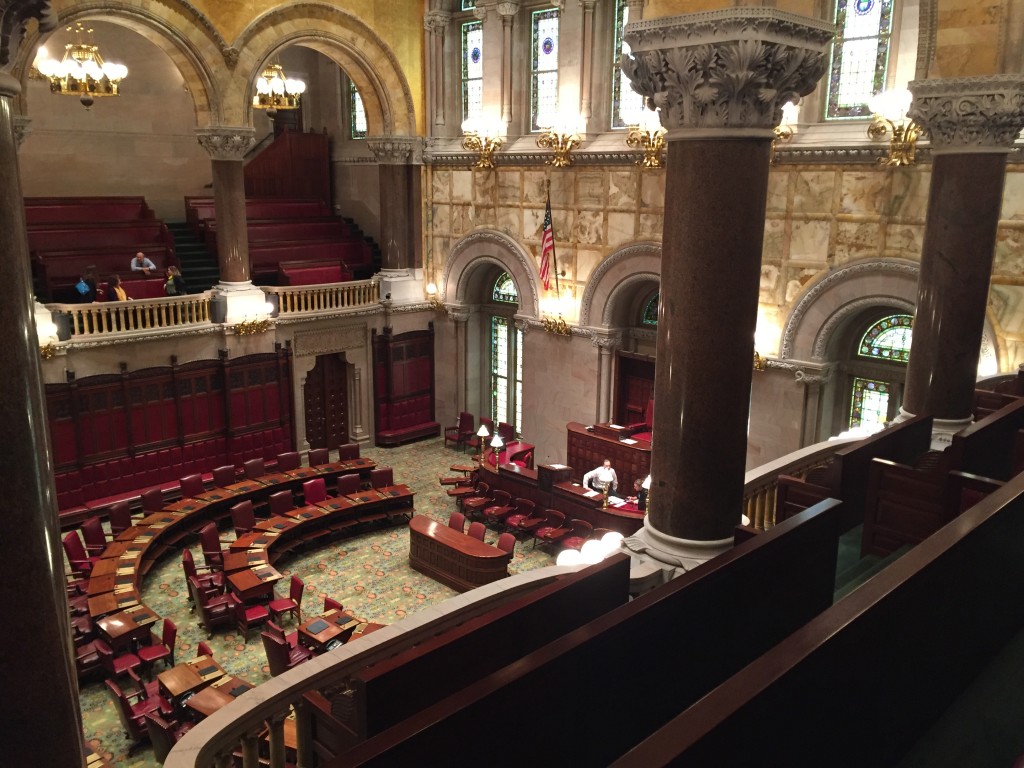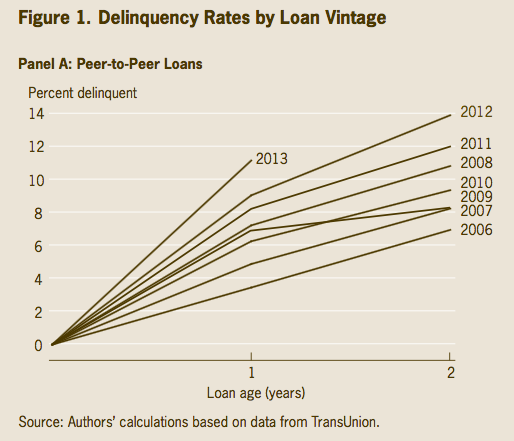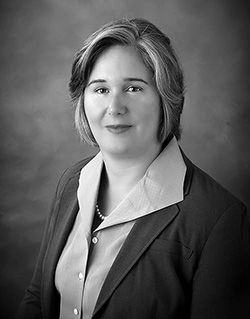Regulation
Fintech Was Back on Capitol Hill
February 1, 2018A House financial services subcommittee hearing this past Tuesday put fintech and online lending back in the spotlight. The most notable witness that testified was Nat Hoopes, Executive Director of the Marketplace Lending Association (MLA). The MLA represents companies like Lending Club, Prosper, Funding Circle, Avant, Marlette Funding, Affirm, CommonBond, Upstart, PeerStreet, and StreetShares.
Hoopes testified that “this industry is effectively serving the broad American ‘middle class’ that remains our engine for economic growth and prosperity.” He also cited data from dv01. “More than one million unsecured marketplace personal loans were issued last year – with an average loan balance of approximately $14,000 and a term of greater than 4 years – far from being a small dollar, short term loan,” he said. “[Marketplace Lending Platforms] offering consumer loans do so at an average of 14.7% APR and 100% of the loans are below the 36% APR threshold.”
Prof. Adam J. Levitin, a Georgetown University Law Professor, played the role of fintech skeptic and called for state and federal regulation to address what he believed were lingering issues.
“What is new about fintechs is that they are nonbank financial companies with ready ability to acquire consumers because of the Internet,” Levitin testified. “This means that despite the regular use of buzzwords like ‘transformative’ and ‘disruptive’ in discussions about fintechs, there really isn’t anything particularly transformative or disruptive about them.
You can watch a recording of the full hearing below:
Click the links to view the testimonies of the following witnesses
- Mr. Nathaniel Hoopes, Executive Director, Marketplace Lending Association (TTF)
- Mr. Brian Knight, Director, Program on Financial Regulation and Senior Research Fellow, Mercatus Center, George Mason University (TTF)
- Mr. Brian Peters, Executive Director, Financial Innovation Now (TTF)
- Mr. Andrew Smith, Partner, Covington and Burling, LLP (TTF)
- Prof. Adam J. Levitin, Professor of Law, Georgetown University Law Center (TTF)
Controversial Legislator Proposes 4% Interest Rate Cap in New Hampshire
January 22, 2018New Hampshire’s Live Free or Die attitude could be challenged by a bill introduced by the state legislature. House Bill 1800-FN-LOCAL, AN ACT relative to usury, proposes a maximum annual rate of interest allowed in all business transactions in which interest is paid or secured to be capped at 4%. Any interest beyond that would automatically warrant a $10,000 fine to the state treasury by the violator. If passed, the law would go into effect beginning April 1, 2018.
New Hampshire currently has no law governing interest rate limits.
One of the Bill’s sponsors, 86-year-old Representative Dick Marple, was arrested twice in 2016. One of those arrests occurred on the day that he was re-elected.
Marple’s interest rate cap bill and the $10,000 penalty therein for violations, is similar to another bill he proposed last month that would recognize “sovereign citizens.” House Bill 1653, would allow individuals to levy $10,000 fines against corporations and municipal agencies for failures to comply with a proposed modified Uniform Commercial Code law.
Marple’s sovereign citizen beliefs played out in a trial last year where he was found guilty of driving on a suspended license. In the Court’s order, the Honorable M. Kristin Spath wrote, “Although the Court urged Mr. Marple to actively participate in the trial, he declined to do so because of his continued belief that this Court does not have the authority or jurisdiction to hear these matters.”
CFPB Still Has Not Begun Collecting Small Business Loan Complaints
January 20, 2018Two years ago, the Consumer Financial Protection Bureau (CFPB) announced that they planned to collect small business lending complaints. However, there is still no option to complain about a small business loan on their website.
“Subject to an assessment of feasibility, the Bureau’s consumer response team will build the infrastructure to intake and analyze small business lending complaints,” an early 2016 report stated.
Although the CFPB did manage to successfully roll out a small business lending Request For Information (RFI) under former Director Richard Cordray, current acting Director Mick Mulvaney seems to have different plans for the government agency. On January 17th, he called for an introspective RFI, one in which the public can share their input on what the CFPB should be doing.
Given the philosophy of the current leadership, it could be a while before small business lending initiatives are rolled out.
CFPB to ‘Reconsider’ Payday Loan Restrictions, is Applauded by CBA
January 17, 2018The Consumer Financial Protection Bureau (CFPB) will be taking a closer look at the Payday Rule.
The legislation, which was finalized in October by former CFPB head Richard Cordray, mandates that lenders must certify that borrowers can afford a loan via background checks before issuing them. Also, the amount of loans to a single customer must be capped.
“January 16, 2018 is the effective date of the Bureau of Consumer Financial Protection’s final rule entitled ‘Payday, Vehicle Title, and Certain High-Cost Installment Loans’” a statement from the CFPB reads. “The Bureau intends to engage in a rulemaking process so that the Bureau may reconsider the Payday Rule.”
Yesterday, the Consumer Bankers Association (CBA) threw their support behind the decision to “reconsider” the restrictions.
“The CFPB’s decision to revisit its small-dollar rule is welcomed news for the millions of American consumers experiencing financial hardship and in need of small-dollar credit,” said CBA president & CEO Richard Hunt via statement.
“Under the current rule, many banks are forced to sit on the sidelines and prevented from offering affordable and popular small-dollar credit options to help meet the needs of their customers. As the CFPB reconsiders this rule, we encourage the Bureau to work with bank regulatory agencies to examine the use of bank offered small-dollar lending products, such as deposit advance products, and ensure any final rule treats all banks equally.”
Should no changes be levied against the Payday Rule, compliance is set to be enforced on August 19th of 2019.
An Online Lending Task Force is Coming to New York (Revised)
January 3, 2018Update: 1/5/18
The final amended version of the law that passed is now online. Read here.
Update: 1/4/18
Although the bill was signed by the Governor, a last minute change eliminated the task force portion of the task force bill. Instead the DFS, NY’s financial services regulator, is tasked with conducting its own study of online lending. The results of their findings are to be submitted to the Governor for review by July 1, 2018.
 An online lending
An online lending task force DFS study will be coming soon to New York, according to legislative records. The New York State bill proposed in June and covered by deBanked, was reportedly signed by Governor Cuomo on December 29th, right before the end of the year.
The law calls for the formation of a 7-person task force to analyze online lending activity in the state. Three members of the task force are to be appointed by the governor, two by the president of the senate, and two by the speaker of the assembly. They are also expected to submit recommendations to the governor based on their findings.
The task force DFS study will examine both small business lending and consumer lending.
Read the final text of the law here. This is the final amended version.
Cleveland Fed Retracts Their Report on P2P Lending
November 18, 2017Here’s something you don’t see every day. A paper published by the Federal Reserve Bank of Cleveland about peer-to-peer lending was so dubious, that it has been taken down.
Since working paper no. 17-18 and related commentary on peer-to-peer lending were posted on our website on November 9, the authors have received several questions about the composition of the underlying data set they used in their analysis. In light of the comments received, the authors are currently revising their paper to further clarify the data sample they used in the study. Their revised paper will be posted as soon as it is completed.
– Federal Reserve Bank of Cleveland after analysts poked major holes in their findings
 P2P Lending evangelist Peter Renton, a LendIt co-founder, was one of the first to challenge it. One issue was a chart purporting to plot delinquency rates in p2p lending going back to 2006.
P2P Lending evangelist Peter Renton, a LendIt co-founder, was one of the first to challenge it. One issue was a chart purporting to plot delinquency rates in p2p lending going back to 2006.
“This chart shows that the lowest delinquencies from P2P loans occurred in 2006. Really?” Renton wrote on his blog. “I am sorry but this is just plain wrong and I challenge the authors to show me the actual data this is based upon. In 2006, the only consumer P2P lending (or any significant online lending) platform in existence in this country was Prosper and their 2006 vintage was terrible.”
Nat Hoopes, executive director of the Marketplace Lending Association (MLA), was even more vocal. In an op-ed he wrote for American Banker, Hoopes says, “In our view, this paper — ‘The Taste of Peer-to-Peer Loans’ — and its accompanying materials show that a lack of precision and understanding of subject matter can result in significant inaccuracies. The report’s authors presented findings that seemed to reflect issues with the P-to-P industry, but they actually relied on data from a much broader category of loans. The result was a misleading and brutally critical report about the P-to-P industry that was actually based in part on data from more traditional loans.”
Online lenders had reason to fret over the report as the Cleveland Fed did more than just publish charts. “P2P loans resemble predatory loans in terms of the segment of the consumer market they serve and their impact on consumers’ finances,” the Fed concluded. “Given that P2P lenders are not regulated or supervised for antipredatory laws, lawmakers and regulators may need to revisit their position on online-lending marketplaces.”
The worst offense, according to MLA’s Hoopes, was that the data the Cleveland Fed relied on was not even p2p lending data. A senior VP at Transunion had reportedly admitted that the data used comprised of both traditional loans and online loans that had been requested by the Fed a long time ago to use for a different study.
Oops.
CFC on the Front Lines of the MCA Regulation Battle
November 6, 2017
As the US Senate attempts to reach a bipartisan agreement on relaxing some of the rules in the Dodd Frank legislation of 2010 that would treat banks more favorably, the MCA industry is having to fend off legislation and regulation of its own at the state and federal levels that could position funders in a similarly crippling position.
MCA regulation has been thrust into the spotlight for a number of reasons, not the least of which has been the Consumer Financial Production Bureau (CFPB). The CFPB is moving forward with the Dodd-Frank Section 1071 rulemaking process for data collection regarding small business lending, a sector of the market for which they do not have jurisdiction, sources say.
Front and center in the policy discussions has been the Commercial Finance Coalition (CFC), a merchant cash advance trade association that is coming up on its two-year anniversary in December. While federal policymakers appear to be listening, state legislatures have been a more difficult nut to crack.
The CFC’s Influence
In its short two-year history, the CFC has been one of the most vocal if not the most influential trade organization lobbying on behalf of the MCA industry, having attended 70 congressional meetings and having led advocacy efforts for the industry in the halls of Albany, Sacramento, Illinois and Washington, D.C.

Dan Gans, executive director of the CFC, has been the voice of the MCA industry on Capitol Hill and has been invited to testify in key congressional hearings. “For whatever reason, the CFC has really become the voice and has taken an active part in the so far successful advocacy efforts to educate and mitigate potential harm to our members’ ability to deploy capital to small businesses that need access,” Gans told deBanked.
Most recently the CFC participated in a fly-in, one of two such events this year, to Washington, D.C. in which the association’s counsel Katherine Fisher of Hudson Cook, LLP testified.
In her testimony Fisher said: “The MCA and commercial lending spaces are sufficiently regulated by existing federal and state laws and regulations. Both MCA companies and commercial lenders must comply with laws and regulations affecting nearly every aspect of their transactions, from marketing and underwriting through servicing and collection.”

She went on to explain: “Even if they comply with every applicable law and regulation, small business financers must also be wary of the Federal Trade Commission’s powerful authority to prevent unfair or deceptive acts or practices.”
Fisher told deBanked she received a “positive” response to her testimony from funders but has not heard anything from lawmakers.
Gans said Fisher did a fantastic job in articulating the needs and status of the industry.
“She presented a very good case as to why the industry is currently adequately regulated. We don’t feel there is a need for federal regulation. In some cases, less regulation would allow our members to deploy more capital and help more small businesses,” Gans said.
The sweet spot for MCAs, Gans explained, are transactions under $100,000 and probably in the $24,000 – $40,000 range. He said the industry does a fantastic job of being able to deploy financial resources to small businesses in a timely manner that neither banks nor SBA lenders can match. He’s not suggesting MCA is for everybody but for some businesses it’s an essential product that can help. There have been many success stories.
“Competition is all over the place. But that’s great for the merchant. The more options that merchants have, the more we can enforce best practices and more competitive rates. And the more we can keep the government from impeding people from getting into this space, the better off small businesses are going to be,” said Gans.
Setting the Record Straight
The CFC was formed with the mindset that the organization, which is currently comprised of CEOs of small- and medium-sized funders, would take a proactive rather than a reactive approach to industry regulation. In its two-year history the CFC has tasked itself not only with educating policymakers on the role of MCA funders for small businesses but also with undoing the misinformation and misconception surrounding the anatomy of an MCA.
“Unfortunately, because MCA uses the term cash advance in its product name, uninformed people will often confuse MCA as some form of payday lending. And so that has been one of our biggest challenges, educating members of congress and committees that there is absolutely no correlation between MCA products and what their views of consumer payday loans is,” said Gans, adding that the CFC has had to communicate that MCA is a version of factoring has been around for more than 1,000 years.
A common thread that the CFC has been able to weave with lawmakers has been the diverse geographical representation of both the trade group and the House and Senate.
“Most venture capital is deployed in a few spots – New York, California and Texas – and it’s a cliff to get to those three states. So, one nice thing that I take pride in is my members are looking all around the country regardless of the geographic location. That helps us with policymakers, most of whom are not from the New York City metropolitan area or Silicon Valley. It’s nice being able to look at them in the eye and tell them we care just as much about your district as you do,” he said.
The Road Ahead
The CFC has an ambitious long-term agenda, one that includes raising their profile in the industry and participating in events.
“I think one of the ambitions we have is to have an organization where funders and brokers can be at the same table and work though some of the issues impacting the industry and try to make sure people are doing things in the right and best way.”
The trade group is planning to partner up with deBanked for Broker Fair 2018 and they’re looking to bolster membership.
“The industry has had a lot of free riders that are benefiting from our advocacy efforts but not supporting it. So, from my perspective, if you’re in this industry, particularly in the MCA space, we’d like to expand membership. If we grow our membership, we can do more things, engage more states and expand our lobbying team,” said Gans. “The more members we have, the more we can do to advance the ball and protect the interests of the industry.”
The CFC will need all the help it can muster given the fight ahead to fend off regulation particularly in Washington, Albany and Sacramento. “I think we could see some harmful regulations and potentially legislation over time. Some of those bad ideas that emanate in states have a tendency to percolate into Washington. If at some point there is a less business-friendly administration in the future, we could see all those ideas get some traction at the federal level,” Gans warned.
House Small Business Committee to Hold Hearing on Online Lending
October 22, 2017On Thursday, October 26th, a House subcommittee on Economic Growth, Tax and Capital Access will be holding a hearing about online lending’s role in improving small business capital access.
The two witnesses scheduled to testify are Kate Fisher, a partner at Hudson Cook, and William Phelan, the president and co-founder of PayNet.
deBanked will attempt to stream the hearing LIVE on our home page. It begins at 10 AM EST in the Rayburn House Office Building.






























